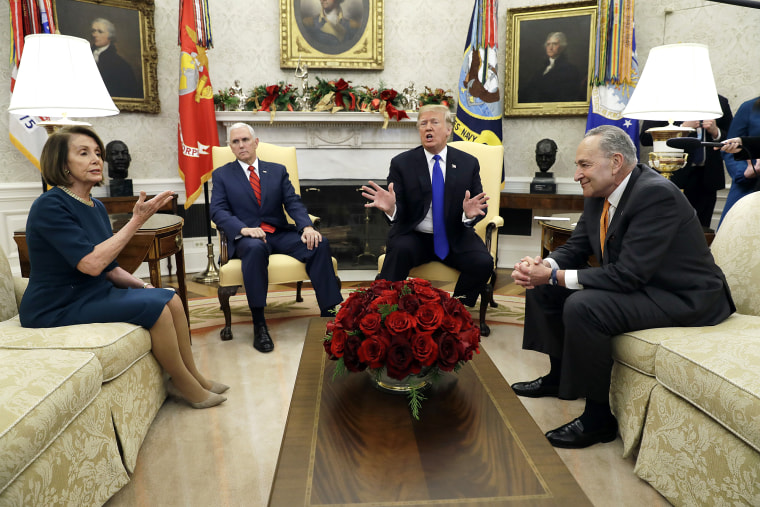There's a version of reality in which the White House and congressional Republicans responded seriously months ago to Democratic proposals for an ambitious economic aid package. In that version of reality, right about now, millions of households would be receiving stimulus checks; the unemployed would be relying on a renewed monthly lifeline; and businesses nationwide would be benefiting from a much-needed boost.
But this is not our version of reality. After House Democrats passed two multi-trillion-dollar aid packages, Republicans balked, and the process, at least for now, has run its course.
House Speaker Nancy Pelosi ended any hopes of a Covid-19 relief bill before the Election Day, blaming the White House for failing "miserably" in a letter to House Democrats on Tuesday.
For his part, Donald Trump suggested yesterday the negotiations were derailed by Democratic demands for supporting state and local governments hard hit by the crisis. "Nancy Pelosi is only interested in bailing out badly run, crime-ridden Democrat cities and states," the president told reporters. "That's all she's interested in."
To the extent that reality still has meaning, Democratic leaders prioritized aid to state and municipal governments as a way of preventing mass layoffs of public-sector workers -- police officers, teachers, firefighters, et al. -- and the assistance would be extended to both "red" and "blue" states.
Trump's dishonesty notwithstanding, the bottom line remains the same: exactly three weeks after Federal Reserve Chairman Jerome Powell implored Congress and the White House to invest heavily in the economy -- sooner rather than later -- efforts to approve an economic aid package came to an end.
There's a fair amount of blame to go around, starting with Senate Majority Leader Mitch McConnell (R-Ky.), who was not only stuck on the sidelines during the negotiations, but who also balked at passing an ambitious plan, even after Donald Trump demanded one.
But this was a dynamic that cried out for presidential leadership, which the Republican incumbent never even tried to provide. Trump, a self-proclaimed world-class dealmaker, refused to sit down at the negotiating table, and spent weeks sending mixed signals about his preferred plan -- at one point going so far as to scrap the process altogether, only to restore it soon after without explanation.
As the Tax Policy Center's Renu Zaretsky recently explained, "In just the past week, Trump has said he wants a big bill, then no bill, then a small bill, then a $1.8 trillion bill, and now, perhaps, an even bigger bill than that. Or not." A day later, the president made matters a bit worse, telling Fox Business that he was "absolutely" prepared to endorse an aid package considerably larger than the one being negotiated by his own team.
As a rule, when no one can say with confidence what a president wants, and even the president himself seems confused about his own goals, talks with the White House go poorly.
As for the road ahead, Trump added yesterday, "After the election, we will get the best stimulus package you have ever seen."
There's reason for skepticism. For one thing, his boast was apparently predicated on the idea that Republican candidates will sweep next week's elections, at which point a GOP-led Congress will deliver an aid package that he'll gladly sign. Polls suggest that's not at all likely, nor is it necessary: a divided Congress has already passed other economic aid bills, and could do so again if the White House was able to show some leadership.
But it'll also be interesting to see what happens if Trump is defeated next week. What would that do to the president's interest in helping his country's economy?

